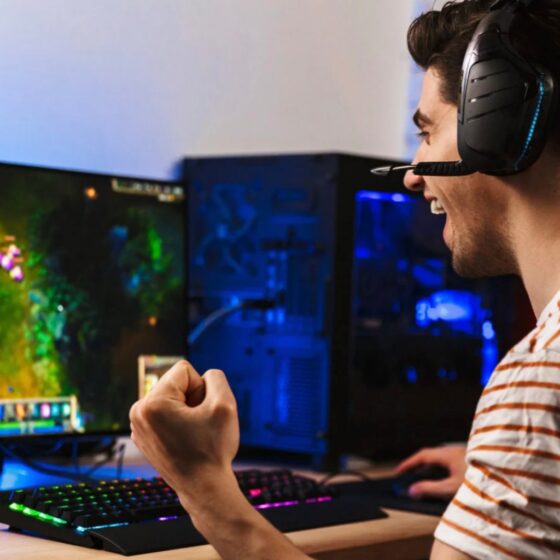Video games, from desire games to online platforms, have transcended mere entertainment, becoming a pivotal part of our daily lives and influencing our emotional and psychological states[8]. This shift not only reflects the growing complexity and emotional depth of games like those found on the desire app but also marks a significant evolution in how digital experiences meet real emotional needs[10].
As the industry continues to innovate with offerings such as couple games apps and the “I want you” app, researchers and psychologists delve deeper into understanding the profound connection between gamers and their virtual avatars[9]. This exploration is crucial in discerning how desire games and related online games fulfill a spectrum of emotional needs, from companionship to achieving a sense of accomplishment[6][7].

The Psychological Anatomy of Video Game Characters
The Concept of Virtual Characters Fulfilling Psychological Needs
Virtual characters in video games often fulfill psychological needs similar to interactions in the real world, providing players with emotional satisfaction and a sense of connection[19]. The design and narrative of these characters enable players to experience complex emotions, such as empathy and attachment, which are crucial for a deeply engaging gaming experience[19]. This emotional engagement is not only pivotal for the enjoyment of the game but also for the psychological well-being of the player, as these virtual interactions can mirror meaningful real-life relationships[19].
Real Emotional Attachments to NPCs and Their Attributes
Players often develop genuine emotional attachments to non-player characters (NPCs) in video games. These attachments can range from feelings of love and admiration to respect and responsibility towards the characters[19]. Such emotional bonds are influenced by the NPCs’ attributes, including their backstories, personalities, and roles within the game narrative[19]. These relationships are significant as they enhance the player’s immersion and connection to the game, making the gaming experience more rewarding and personal[19].

Comparing Virtual and Real-Life Interpersonal Attraction
The interpersonal attraction between players and video game characters can be analyzed through the same psychological lenses used to understand real-world relationships[19]. Factors like physical attractiveness, personality traits, and usefulness contribute to the appeal of both real and virtual individuals[19]. This similarity suggests that the psychological processes governing attraction and relationship formation are consistent across both real and virtual settings, highlighting the profound impact of game character design on player engagement and emotional fulfillment[19].
Understanding the Player-Character Bond
Importance of Player Personalities and Game Motivations
Online games serve as miniature societies where social interactions within a virtual world fulfill interpersonal needs, significantly influenced by player personalities and game motivations[36]. The outward appearance of characters, akin to real-world individual outward appearance and social status, can be manipulated, affecting interpersonal attraction[36]. Furthermore, as players’ game experience and performance accumulate, their in-game grade and consequently, their social status rises, influencing others’ attitudes towards them[36]. This dynamic underscores the profound impact of player personalities and motivations on the player-character bond, shaping the social fabric of online gaming communities.
How Virtual Character Traits Influence Player Emotional Responses
Virtual characters, designed to be both physically and psychologically attractive, play a pivotal role in engaging users in immersive experiences[34]. Research indicates that emotions expressed by virtual characters are recognizable by users, influencing emotional engagement[34]. Additionally, the attractiveness and customization of avatars positively relate to avatar identification, which in turn enhances players’ flow and loyalty towards online games[38]. The Mixed Emotions and Character Appeal (MECA) Model suggests that character traits such as competence, aesthetics, and morality influence emotional responses, determining the level of interest in playing the character[40].
Effects of Physical Attractiveness, Friendliness, and Utility in Games
The physical attractiveness, friendliness, and utility of game characters significantly influence online interpersonal attraction[36]. Characters with high outward attractiveness and social status acquire higher online interpersonal attraction than those with low attractiveness and status[36]. Moreover, studies have shown that players tend to identify more with physically attractive characters, aligning with societal beauty standards and carrying positive associations with traits like health and intelligence[27]. This identification not only enhances the gaming experience but also influences players’ perceptions of the game community and their motivations for playing, including the thrill of a challenge and the desire for social interaction[27].

The Role of Video Games in Fulfilling Emotional Needs
Video games as tools for emotional expression and regulation
Video games have emerged as significant tools for emotional expression and regulation, offering players a controlled environment to explore and process their emotions. This capability of video games to serve as a medium for emotional exploration is increasingly recognized, with studies indicating their positive effects on emotion regulation (ER)[41]. The use of video games for digital emotion regulation has been investigated, showing that players utilize these platforms to respond to their realities, socialize, and communicate with friends, leading to both intentional and unintentional emotional outcomes[42]. Furthermore, biofeedback video games represent an innovative approach, transforming emotional regulation into an engaging activity. By linking emotions directly to gameplay through real-time feedback, such as heart rate monitoring, players develop stronger emotional awareness and regulation skills, effectively building emotional muscle memory[45].
Satisfaction of basic psychological needs through gameplay
The satisfaction of basic psychological needs through gameplay is a fundamental aspect of why video games are so appealing. Self-Determination Theory (SDT) posits that fulfilling the needs for autonomy, competence, and relatedness is crucial for well-being and intrinsic motivation. Video games provide an immersive experience that meets these needs by offering clear progression feedback, fostering a sense of achievement and mastery[46]. They also balance autonomy with guided activities, ensuring players feel a degree of freedom while being supported in their journey within the game world[46]. Additionally, video games facilitate relatedness by enabling players to form connections with both in-game characters and real-life players, fostering a sense of belonging and community[46][48].

The impact of in-game achievements and relationships on real-life well-being
In-game achievements and relationships extend their influence beyond the digital realm, positively impacting players’ real-life well-being. Achieving goals and developing skills within games can translate to improved real-world abilities, such as problem-solving and strategic thinking[51]. Moreover, the social interactions facilitated by multiplayer games enhance communication, collaboration, and social connections, reducing feelings of isolation[51]. The role-playing aspect of video games allows for therapeutic self-expression and identity exploration, contributing to empathy and understanding[55]. These elements combined underscore the significant role video games play in fulfilling emotional needs, offering a sense of accomplishment, stimulating creativity, and providing an escape from daily life challenges[55].
Navigating Negative Emotions and Video Game Frustrations
The Dual Nature of Game Frustrations: Barriers vs. Engagement Enhancers
Video games can elicit a broad spectrum of emotions, ranging from exhilaration to frustration. Frustration in gaming, often viewed negatively, can also enhance engagement and deepen the gaming experience[57]. This dual nature presents both challenges and opportunities for game developers. On one hand, frustrations can act as barriers, deterring players and potentially leading to disengagement. On the other, they can serve as engagement enhancers, motivating players to overcome challenges and thereby increasing immersion and satisfaction[57].

Mechanics of Frustration in Games and Their Psychological Implications
The mechanics of frustration in video games are complex and can significantly affect a player’s emotional experience. Frustration arises from various sources, including challenging gameplay, technical issues, or unfair game mechanics. While some levels of frustration can motivate players to improve their skills and overcome challenges, excessive frustration might lead to negative emotional responses such as anger and disengagement[57]. Understanding these mechanics allows developers to create more balanced gaming experiences that can engage players without overwhelming them.
Strategies for Managing Negative Emotions and Enhancing Positive Gameplay Experiences
Managing negative emotions in gaming involves a strategic approach to game design and player support. Developers can implement several strategies to reduce frustration and enhance positive gameplay experiences:
- Gradual Difficulty Progression: Introducing players to game mechanics gradually helps prevent overwhelming them with complexity, thereby reducing frustration and enhancing learning and enjoyment[57].
- Clear Instructions and Feedback: Providing players with clear, concise instructions and immediate feedback can help them understand game mechanics and correct mistakes, which reduces confusion and frustration[57].
- Player Autonomy and Choice: Allowing players to make meaningful decisions that influence game outcomes can give them a sense of control, reducing feelings of helplessness and frustration[57].
- Supportive Game Community: Fostering a supportive community can help players deal with frustrations by sharing experiences and strategies for overcoming challenges[57].
By carefully designing games to address and balance the dual nature of frustrations, developers can create more engaging and emotionally rewarding gaming experiences.

Conclusion
Throughout the exploration of how video games, particularly desire games, fulfill real emotional needs, it has become evident that they are more than just forms of entertainment; they are vehicles for emotional expression, regulation, and fulfillment. From the deep emotional attachments players form with virtual characters to the satisfaction of basic psychological needs through gameplay, video games offer a unique blend of narrative depth and interactive engagement that mirrors, and often enhances, real-world emotional experiences. The intricacies of player-character bonds, alongside the critical role of video games in emotional regulation and the satisfaction of psychological needs, underscore the significant impact of gaming on emotional well-being.
Moreover, the exploration into the dual nature of game frustrations highlights the complex emotional landscape of gaming, showcasing how challenges within games can serve both as barriers and as catalysts for deeper engagement. Strategies for managing negative emotions and enhancing positive gameplay experiences reveal the careful balance game developers strive for to create enriching gaming environments. As video games continue to evolve, their potential to meet real emotional needs and influence well-being remains a compelling aspect of their appeal. This understanding encourages a broader consideration of video games’ role in psychological health and emphasizes the importance of further research and thoughtful discussion in this vibrant intersection of technology and human emotion.
FAQs
Why do people engage in gaming?
The underlying psychology of gaming is largely centered around escapism. Individuals play games to momentarily step away from the realities of life, immersing themselves in virtual worlds where they can assume roles of heroes or explorers. This provides a temporary refuge and a sense of adventure.
Who are the typical individuals that engage in psychological games?
Individuals who engage in mind games often do so from a place of immaturity and insecurity. They aim to manipulate and control others in order to gain an advantage in relationships, without exposing their own vulnerabilities or weaknesses.
What motivates people to play mind games in relationships?
The motivation behind playing mind games in relationships is usually to manipulate or control the other person to achieve a certain outcome. While the intent to hurt or control is inexcusable, it often stems from deeper personal issues that the individual may be facing.
Can you explain the concept of game psychology?
Game psychology explores the effects of gaming on a player’s behavior, emotions, and cognitive processes. It delves into understanding how different aspects of games influence the psychological state and actions of individuals who play them.









